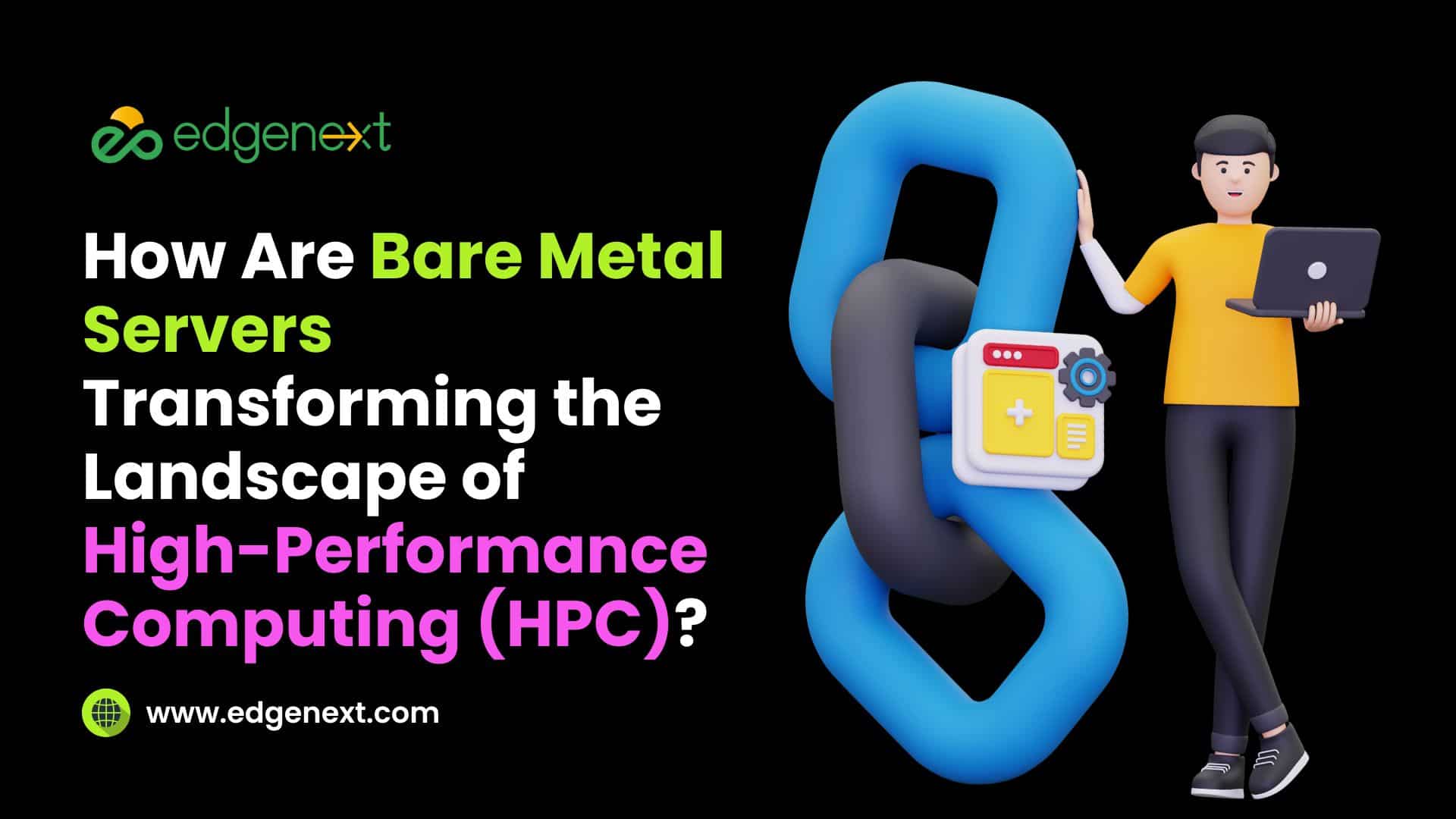
Bare metal servers are fundamentally transforming the landscape of high-performance computing (HPC) by providing unparalleled computational power and flexibility. Unlike virtualized servers, which share resources among multiple users through a hypervisor, bare metal servers dedicate all hardware resources to a single tenant. This direct access to the physical server eliminates the overhead associated with virtualization, allowing applications to maximize the server’s processing power, memory, and storage capabilities. This makes bare metal servers especially suited for HPC tasks, where performance, speed, and reliability are critical.
For example, the precision and speed at which calculations are performed in scientific simulations or financial modeling can significantly impact the outcomes. By using bare metal servers, organizations can ensure that their HPC applications run at peak performance without the risk of resource contention or latency introduced by other users sharing the same hardware. The ability to customize the server environment further enhances its suitability for complex HPC workloads, enabling configurations that are finely tuned to the application’s specific needs.
Bare metal servers are preferred for HPC workloads because they provide the highest performance, reliability, and control levels, which are essential for executing complex computations. HPC tasks often involve processing vast amounts of data, requiring significant computational power, high memory bandwidth, and fast I/O operations. Bare metal servers excel in these areas by offering dedicated resources that are fully available to the application without the performance penalties associated with virtualization.
In industries such as genomics, climate research, and engineering, where simulations and models require enormous processing power and precise execution, bare metal servers can dramatically reduce computation times and improve the accuracy of results. These servers are often paired with specialized hardware, such as GPUs or FPGAs, to accelerate processing tasks further. This capability is crucial in HPC environments, where every second saved in computation translates to cost savings and faster time-to-insight.
Additionally, the reliability of bare metal servers makes them ideal for long-running HPC tasks. Since these servers are not subject to the unpredictability of shared environments, where resource availability can fluctuate, they provide a stable and consistent platform for running intensive computations. This reliability is vital for applications that require uninterrupted processing over extended periods, ensuring that results are delivered accurately and on time.
Bare metal servers enhance scalability in HPC environments by providing a robust foundation for building large-scale computing clusters. As the computational demands of HPC applications grow, organizations can quickly expand their infrastructure by adding more bare metal servers, each contributing dedicated resources to the overall system. This scalability is essential for handling modern HPC workloads’ increasing data volumes and processing requirements.
Bare metal servers can be integrated into high-performance clusters that utilize advanced networking and storage solutions to optimize data throughput and processing speed. This integration allows organizations to scale their HPC infrastructure modularly, adding servers and other resources as needed to meet the demands of specific projects or workloads. For example, in a research setting where new data sets are constantly being generated and analyzed, the ability to quickly scale the computing environment ensures that processing capacity keeps pace with the growth in data.
Scalability also means organizations can deploy bare metal servers across multiple locations, creating distributed HPC environments that leverage edge computing principles. This approach increases computational capacity and reduces latency by processing data closer to where it is generated. For global enterprises or research institutions with geographically dispersed teams, this ability to scale across locations while maintaining high performance is a crucial advantage of using bare metal servers in HPC.
In HPC, reducing latency is crucial because even minor delays can significantly affect the efficiency and accuracy of complex computations. Bare metal servers play a critical role in minimizing latency by providing direct access to the hardware, thereby eliminating the overhead that virtualization can introduce. This direct access means that data can be processed more quickly, with fewer interruptions, leading to faster computation times and more immediate results.
This reduction in latency is significant in real-time applications, such as high-frequency trading or real-time data analytics, where decisions must be made in milliseconds. In such scenarios, the speed at which data is processed can make the difference between success and failure. By utilizing bare metal servers, organizations can ensure that their HPC applications run with the lowest possible latency, providing a competitive edge in environments where time is critical.
Using bare metal servers in HPC allows for more efficient data handling, as the absence of a hypervisor means there is less delay in accessing memory and storage resources. This efficiency is further enhanced when bare metal servers are used with advanced networking technologies, such as InfiniBand or RDMA, designed to reduce communication latency between nodes in a computing cluster. Combining these technologies ensures that HPC applications can process and analyze data at the speed required to deliver timely and accurate insights.
Bare metal servers revolutionize high-performance computing by offering unmatched performance, scalability, and reliability. Their ability to provide direct hardware access without the overhead of virtualization makes them the preferred choice for HPC workloads that demand maximum computational power and low latency. As the demands on HPC continue to grow, the role of bare metal servers in supporting advanced computational tasks will become increasingly important, enabling organizations to tackle the most complex and data-intensive challenges confidently.
Unlock the full potential of your high-performance computing (HPC) workloads with EdgeNext’s cutting-edge bare metal server solutions. Contact us today for a free consultation and discover how EdgeNext can transform your HPC infrastructure with the latest bare metal technology. Elevate your computing capabilities with EdgeNext—where performance meets precision.
References:

© 2025 EdgeNext Copyright All Right Reserved